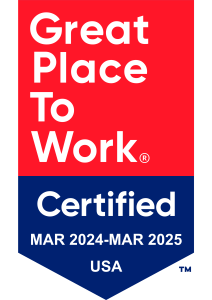Retirement is a significant milestone, but reaching it comfortably requires careful planning, strategic savings, and avoiding common financial pitfalls. Many individuals, regardless of income level, unknowingly make mistakes that can jeopardize their retirement security. From underestimating healthcare costs to poor investment decisions, these errors can have lasting consequences. In this guide, we’ll outline the most common retirement planning mistakes and provide actionable strategies to help you avoid them, ensuring long-term financial security.
Why Avoiding Retirement Planning Mistakes Matters
Your retirement years should be spent enjoying life, not worrying about money. Effective retirement planning is essential to maintaining your standard of living, protecting your financial security, and achieving your lifestyle goals. Failing to avoid critical mistakes can lead to:
Outliving your retirement savings
Paying excessive taxes
Facing unexpected healthcare expenses
Having an insufficient income stream
Proactively addressing these challenges ensures that you can retire with confidence.

Mistake #1: Delaying Retirement Planning
One of the most common retirement planning mistakes is simply starting too late. Many people delay retirement planning, assuming they have “plenty of time” to save.
Why It’s a Mistake:
The power of compound interest diminishes the longer you wait. Early contributions to retirement accounts grow exponentially over time, while delayed savings require higher contributions to achieve the same goal.
How to Avoid It:
Start saving as early as possible, even if it’s a small amount.
Contribute consistently to retirement accounts like 401(k)s, IRAs, or Roth IRAs.
Increase contributions as income grows.
Take advantage of employer-sponsored retirement plans and matching contributions.
Mistake #2: Underestimating Healthcare and Long-Term Care Costs
Many retirees underestimate how much healthcare will cost in retirement. Rising healthcare expenses, coupled with longer life expectancy, can quickly drain retirement savings.
Why It’s a Mistake:
Medicare does not cover all healthcare expenses, especially long-term care, dental, vision, or hearing services. Without proper planning, retirees may face significant out-of-pocket costs.
How to Avoid It:
Incorporate healthcare costs into your financial planning.
Consider long-term care insurance to cover nursing home or in-home care.
Max out contributions to a Health Savings Account (HSA) if eligible.
Factor Medicare premiums, supplemental insurance, and out-of-pocket expenses into your retirement budget.
Mistake #3: Relying Solely on Social Security
Many individuals mistakenly believe that Social Security benefits alone will cover their retirement expenses.
Why It’s a Mistake:
Social Security was never intended to replace full income in retirement—it is designed to cover approximately 40% of pre-retirement income. High inflation, healthcare costs, and lifestyle expenses can quickly exceed Social Security income.
How to Avoid It:
Treat Social Security as one component of a diversified income strategy.
Delay claiming benefits until full retirement age or later to maximize monthly payments.
Supplement Social Security with personal savings, pensions, and retirement investments.
Consult a financial advisor to determine the optimal time to claim benefits.
Mistake #4: Ignoring Tax-Efficient Retirement Strategies
Taxes don’t end when you retire. Many retirees fail to incorporate tax-efficient strategies into their retirement planning, leading to higher-than-necessary tax bills.
Why It’s a Mistake:
Without tax planning, retirees may withdraw too much from tax-deferred accounts, pushing themselves into a higher tax bracket and increasing Medicare premiums through IRMAA (Income-Related Monthly Adjustment Amount).
How to Avoid It:
Implement tax-efficient retirement withdrawal strategies.
Diversify accounts among tax-deferred, tax-free (Roth IRA), and taxable accounts.
Consider partial Roth conversions during low-income years.
Utilize Qualified Charitable Distributions (QCDs) if you’re age 70½ or older to satisfy RMDs without increasing taxable income.
Mistake #5: Failing to Diversify Retirement Investments
Over-concentration in one asset class, such as stocks or real estate, can expose retirees to unnecessary risk.
Why It’s a Mistake:
Market downturns can significantly reduce the value of a non-diversified retirement portfolio, forcing retirees to withdraw at the worst possible time.
How to Avoid It:
Diversify across multiple asset classes (stocks, bonds, real estate, digital assets, etc.).
Rebalance your portfolio regularly to maintain your desired asset allocation.
As retirement approaches, gradually shift to more conservative investments.
Work with a financial advisor to build a retirement investment strategy aligned with your risk tolerance and financial goals.
Mistake #6: Overlooking Required Minimum Distributions (RMDs)
Many retirees forget or delay taking RMDs from tax-deferred retirement accounts.
Why It’s a Mistake:
The IRS requires retirees to take RMDs starting at age 73. Failure to do so results in a 25% penalty on the amount not withdrawn.
How to Avoid It:
Keep track of RMD deadlines and amounts.
Consider consolidating retirement accounts to simplify RMD management.
Plan RMD withdrawals strategically to avoid unnecessary tax spikes.

Mistake #8: Neglecting Inflation in Retirement Planning
Failing to account for inflation is a common retirement planning mistake. Even low inflation rates erode purchasing power over time.
Why It’s a Mistake:
Without inflation-adjusted income sources, retirees may struggle to maintain their standard of living in later years.
How to Avoid It:
Include inflation-protected investments like Treasury Inflation-Protected Securities (TIPS).
Invest in dividend-paying stocks or real estate to keep pace with inflation.
Factor in annual cost-of-living adjustments (COLA) when projecting expenses.
Mistake #9: Ignoring Estate and Legacy Planning
Many retirees neglect estate planning, believing it only applies to the ultra-wealthy.
Why It’s a Mistake:
Without a clear estate plan, your heirs may face probate costs, estate taxes, and family disputes.
How to Avoid It:
Draft a will and update beneficiary designations.
Consider establishing a trust for efficient wealth transfer.
Create healthcare directives and powers of attorney.
Work with a financial advisor and estate planning attorney.
Mistake #10: Not Seeking Professional Financial Advisor
Attempting to manage retirement planning without professional guidance can lead to costly errors.
Why It’s a Mistake:
Retirement planning involves complex considerations, including tax laws, healthcare costs, and market risks. A lack of expertise may result in missed opportunities.
How to Avoid It:
Consult with a retirement financial advisor to create a personalized plan.
Schedule annual financial reviews to adjust strategies as circumstances change.
Work with a fiduciary who prioritizes your best interests.
Conclusion
Avoiding these common retirement planning mistakes is essential to safeguarding your financial future. By starting early, diversifying investments, incorporating tax-efficient strategies, and seeking professional guidance, you can create a retirement plan that provides financial security and peace of mind.
Goldstone Financial Group is committed to helping individuals and families navigate the complexities of retirement planning. Schedule a consultation today to develop a comprehensive, tax-efficient retirement strategy tailored to your unique needs.



